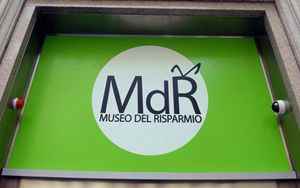(Finance) – The Savings Museummuseum of Intesa Sanpaolo dedicated to financial education unique of its kind, organizes within School4Life, the program promoted by ELIS against school dropout, didactic activities in 14 Italian schools on different topics such as education financial, circular economy, sustainability and orientation meetings, which will alternate with creativity marathons (creathon) and moments of comparison and learning on an experiential basis. The initiative, in the context of activities ESG of Intesa Sanpaolo, sees the contribution of the Museum and the Group’s Learning Academy. Teachers and parents will also be involved in dedicated training programs and webinars and will have the “Noi Restiamo” listening and support desk available, designed to combat situations at risk. The program of activities also promotes the approach of female students to matter STEM (Science, Technology, Engineering, Mathematics), with the idea that these skills are able to offer them wider job opportunities.
School4Life involves some large Italian companies and will affect a total of 15,000 students throughout the country, with particular attention to the Regions of Sardinia, Campania, Sicily, Lombardy and Liguria where, according to data from the Ministry of Education, the phenomenon is more widespread.
Globalization and digital evolution generally make education directly related to risk unemployment. In Italy, the problem of premature abandonment of education and training occurs in an accentuated form: in fact, it stands at 13.1% of the total school population, as noted by the Istat Report on Education Levels 2021, well beyond the threshold 10% fixed by Brussels with the Europe 2020 strategy. Furthermore, from OECD Report 2019 it also emerges that the unemployed with average layoffs are twice as many as high school graduates and almost four times as many as graduates, and that early school leaving contributes about 35% to the phenomenon of “neets”, people between 20 and 24 years of age who they don’t study, they don’t work, they don’t look for a job.
One scenario which makes it clear how the school Italian, starting from middle school, should provide students with ideas and elements for reflection to guide them in their subsequent choices. The pandemic emergency has brought the school back to the center of civil life, giving it back its social visibility and triggering an evolutionary process that requires efforts and strategic innovations. It is becoming increasingly clear that investment in education and training is an indispensable asset to guarantee young people full social and economic citizenship.
